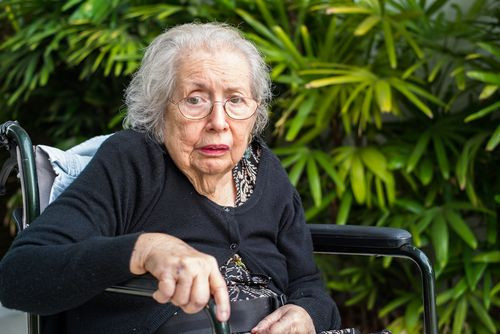Women With ApoE4 Are At Higher Risk Of Alzheimer's Than Men With Same Gene Variant

Beginning at birth, gender differences continue well into old age. The number of women with Alzheimer's, for instance, is dramatically larger than the number of men with the disease yet often this is explained away by the fact that women, on average, live longer. This, though, is not the complete story. "Even after correcting for age, women appear to be at greater risk," said Dr. Michael Greicius, assistant professor of neurology and neurological sciences and medical director of the Stanford Center for Memory Disorders. Now, in a new study, Greicius and his colleagues found that carrying a copy of a gene variant known as ApoE4 confers a substantially greater risk for Alzheimer's disease on women than it does on men.
There is no cure for Alzheimer's disease, a neurological syndrome that worsens over time, destroying a patient’s memory and ability to reason. For the new Stanford study, the team of researchers analyzed the medical records of more than 8,000 people, most of them older than 60, who have been monitored over time at any one of about 30 Alzheimer's centers nationwide. The records were stored in two large repositories; the first held clinical reports, the second held imaging data and other information. From the first repository, the researchers analyzed doctor’s office assessments of 5,000 people whose test results were normal during their first visit and compared them to 2,200 people who had showed signs of mild cognitive impairment during their first visit. As expected, being an ApoE4 carrier increased the likelihood of Alzheimer's disease in both groups.
But then the researchers took a closer look and found that the increased risk for men was only marginal (among those who initially tested normal). But for women, the same ApoE4 gene variant among those who initially tested normal meant they were nearly twice as likely to progress to Alzheimer's disease (or mild cognitive impairment) when compared to those who didn’t carry the ApoE4 gene.
"Our study showed that, among healthy older controls, having one copy of the ApoE4 variant confers a substantial Alzheimer's disease risk in women, but not in men," Greicius said in a press release. Dipping into the second repository, the researchers analyzed imaging data for 1,000 patients as well as measurements of several biochemical substances from their spinal fluid. These results confirmed ApoE4's differential effect on women versus men, while also yielding clues as to why ApoE4 is linked to Alzheimer's disease.
The ApoE gene codes for a protein that shuttles fatty substances throughout the body. (Brain function depends, in part, on swift rearrangement of such fatty substances along and among nerve cell membranes.) Most people carry two copies, one from each parent, of the ApoE3 gene variant but about one in five people carries at least one copy of ApoE4, and a small percentage have two ApoE4 copies.
Greicius, who continues to see patients despite his research schedule, noted that the different effect of ApoE4 on men and women suggests that clinicians take gender into account when seeing patients with this particular gene variant. "These days, a lot of people are getting genotyped either in the clinic or commercially,” he said. “People come to me and say, 'I have an ApoE4 gene, what should I do?' If that person is a man, I would tell him that his risk is not increased much if at all. If it's a woman, my advice will be different." Experts project that by mid-century, the number of Americans with Alzheimer's will have more than doubled from the current estimates of five-to-six million.
Source: Greicuis MD, Tian L, Henderson V, Altmann A. Sex Modifies the APOE-Related Risk of Developing Alzheimer Disease. Annals of Neurology. 2014.
Published by Medicaldaily.com



























